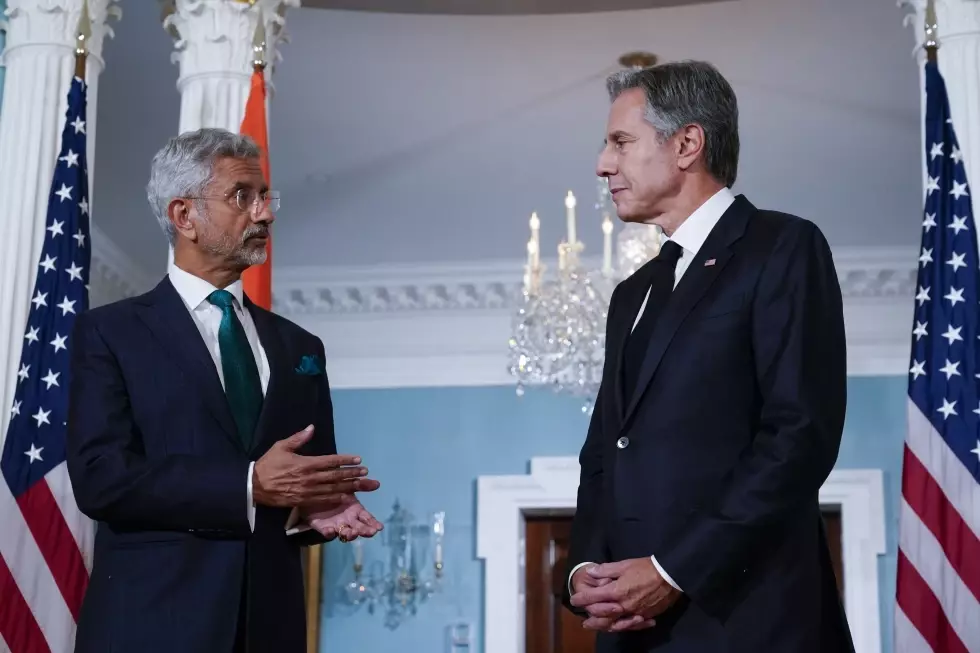Blinken meets Indian foreign minister as row between India and Canada simmers
WASHINGTON

Secretary of State Antony Blinken met Thursday with India’s foreign minister amid a simmering row between New Delhi and Ottawa over allegations of Indian government involvement in the killing of a Sikh activist in Canada.
Blinken and Subrahmanyam Jaishankar met Thursday at the State Department as the U.S. tries to navigate the dispute between its northern neighbor and the South Asian country critical to its Indo-Pacific strategy to counter China's rising influence in the region.
Neither man spoke to the controversy that has disrupted Canada-India relations in very brief comments to reporters, but a U.S. official said the topic was raised. The official, who spoke on condition of anonymity to discuss the private talks, said Blinken encouraged India to cooperate with the Canadian probe.
“We have consistently engaged with the Indian government on this question and have urged them to cooperate,” State Department spokesman Matthew Miller told reporters ahead of the meeting.
After the meeting, Miller said in a statement that Blinken and Jaishankar had “discussed a full range of issues, including key outcomes of India’s G20 presidency, and the creation of the India-Middle East-Europe Economic Corridor and its potential to generate transparent, sustainable, and high-standard infrastructure investments.”
They also covered “the continued importance of cooperation ahead of the upcoming 2+2 Dialogue, in particular in the areas of defense, space, and clean energy,” Miller said. The G20 refers to the Group of 20 summit that was recently held in New Delhi and was attended by President Joe Biden. The “2+2” dialogue is a format for meetings between the U.S. and Indian foreign and defense ministers.
Earlier Thursday, Canadian Prime Minister Justin Trudeau said he had been told Blinken would address the matter and encourage the Indian government to cooperate with an investigation into the killing.
“The Americans have been with us in speaking to the Indian government about how important it is that they be involved in following up on the credible allegations that agents of the Indian government killed a Canadian citizen on Canadian soil,” Trudeau said.
“This is something all democratic countries, all countries that respect the rule, need to take seriously and we are moving forward in a thoughtful, responsible way anchored in the rule of law with all partners, including in our approach with the government of India,” he told reporters in Montreal.
U.S. officials have acknowledged that the fallout from the allegations, which they take seriously, could have a profound impact on relations with India but have been careful not to cast blame in the June killing of Sikh activist Hardeep Singh Nijjar, who was slain in a Vancouver suburb.
Killed by masked gunmen, Nijjar was a leader in what remains of a once-strong movement to create an independent Sikh homeland, known as Khalistan, and India had designated him a terrorist.
India’s foreign ministry has dismissed the allegation as “absurd” and accused Canada of harboring “terrorists and extremists.” It also implied that Trudeau was trying to drum up domestic support among the Sikh diaspora.
In his comments, Trudeau said Canada did not want to rupture ties with India but takes the matter seriously.
“As we’ve presented with our Indo-Pacific strategy just last year, we’re very serious with about building closer ties with India," he said. “At the same time ... we need emphasize that India needs to work with Canada to ensure that we get the full facts on this matter.”
















